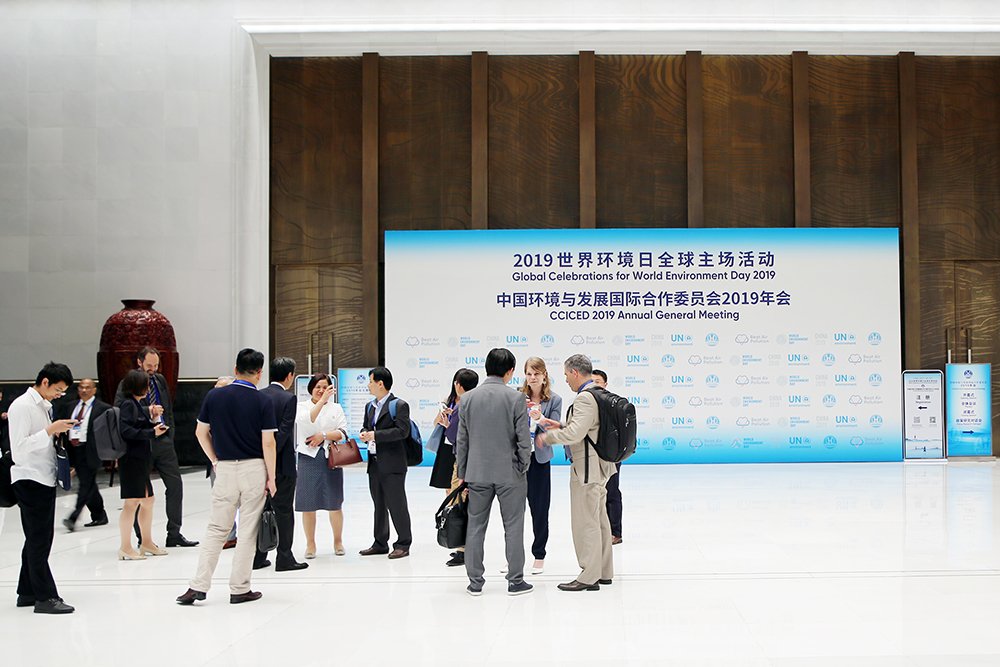Summary

The 2019 Annual General Meeting (AGM) of the China Council for International Cooperation on Environment and Development (CCICED) entered its second day of discussions in Hangzhou, China.
Li Ganjie, Minister for Ecology and Environment, China, opened the proceedings in the morning, and CCICED advisors introduced an issues paper and eight draft policy recommendations, which addressed, inter alia, green consumption, the use of digital technologies, environmental protection of the Yangtze River Economic Belt, climate change, institutional design, biodiversity conservation, marine sustainable development, and China’s Belt and Road Initiative (BRI).
Delegates heard about China’s efforts to build an ecological civilization, including: reorganizing the work of the provincial and local-level environmental bureaus across the country; enhancing environmental management and monitoring in coastal zones and watersheds; combating air pollution; and encouraging the private sector to help generate momentum for green development.
Many delegates commended China for its forward-thinking domestic policies, and encouraged action to support countries in meeting their international commitments under the Paris Agreement on Climate Change and the 2030 Agenda for Sustainable Development. They expressed strong support for working with China on greening the BRI.
In the afternoon, delegates heard report-backs from the six parallel open forums that had taken place the previous day. Participants suggested that China’s ambitious domestic actions to address air pollution could be a model of climate action for the rest of the world, and some urged China to prioritize renewable energy and avoid new investments in coal in BRI countries.
Many also mentioned China’s ‘ecological redline’ policy as an example of domestic practice that others can learn from, noting, as well, its achievements in reforestation and waterway clean-up. They urged China to provide capacity building to BRI countries for nature conservation.
Summarizing the discussions of the day, Andrew Steer, CEO of the World Resources Institute, emphasized the importance of transparency in the BRI, highlighting its potential to be ‘truly transformative’ for world development.